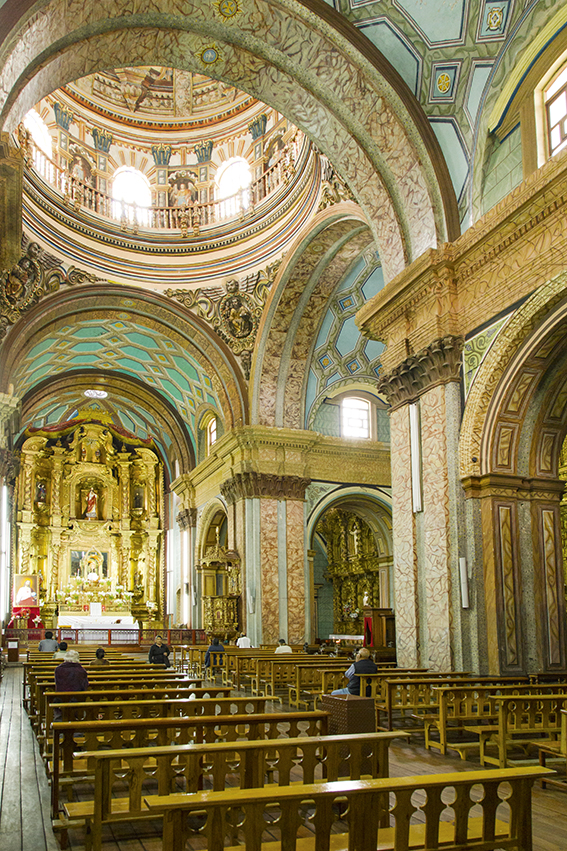(Deeptranslator)
From the moment of the Incarnation we can say with a sense of self that God is with us, with a personal, real presence, and in a way that is exclusive to Jesus Christ: Jesus Christ, true Man and true God, has with us a closeness and proximity greater than any other that can be thought of. Jesus is God-with-us. Before, the Israelites said that God was with them; now, we can say it in an exact way, as when we say that something we appreciate with our senses is closer or farther away from where we are. In Palestine, Christ walked, approached a city, went out to preach in other places? When he finished these parables, he left from there , we read in the Gospel of the Mass. And God left that place to meet other people. The priest, when he consecrates in the Holy Mass, brings us Christ, God and Man, to the altar where before he was not with his Most Holy Humanity.
It is a special presence, which is only given in the Eucharist and which continues, while the species lasts, in the Tabernacle, the Tabernacle of the New Covenant; this presence affects directly the Body of Christ and indirectly the Three Divine Persons of the Blessed Trinity: the Word, through union with the Humanity of Christ, and the Father and the Holy Spirit, through the mutual immanence of the Divine Persons. In the Tabernacle, Christ is truly present, with his Body, with his Blood, with his Soul and with his Divinity. It is literally appropriate to say: "God is here," close to me: I believe, Lord, firmly that you are there, that you see me, that you hear me
The Magisterium of the Church, coming to terms with various errors, has recalled and clarified the scope of this Eucharistic presence: it is a real presence, that is, neither symbolic nor merely signified or hinted at by an image; true, not fictitious, not merely mental or set by the faith or good will of those who contemplate the sacred species; and substantial, because, by the power of God that the words of the priest have at the moment of Consecration, the whole substance of the bread becomes the Body of the Lord and the whole substance of the wine becomes his Blood. Thus, the adorable Body and Blood of Jesus Christ are substantially present, and "in reality itself, independently of our spirit, the bread and wine have ceased to exist after the Consecration "; "once the transubstantiation has taken place, the species of bread and wine (...) contain a new "reality", which we rightly call ontological, because under these species there is no longer what existed before, but something completely different (...), and this not only because of the Church's judgment of faith, but because of objective reality ".
Jesus is present in our tabernacles regardless of whether many or few benefit from his ineffable presence. He is there, with his Body, with his Blood, with his Soul, with his Divinity. God made Man; there is no greater proximity. The Church possesses in her bosom the Author of every grace, the perennial cause of our sanctification. In some way we can say that the Eucharistic presence of Christ is the sacramental prolongation of the Incarnation.
From the Tabernacle, Jesus invites us to bring together our affections, our petitions. In the visit to the Blessed Sacrament and in the acts of worship of the Holy Eucharist we are grateful for this gift, of which we are sometimes not entirely aware. There we go to seek strength, to tell Jesus how much we miss him, how much we need him, for "the Eucharist is kept in the temples and oratories as the spiritual center of the religious community or parish; indeed, of the universal Church and of all humanity, since under the veil of the sacred species it contains Christ the invisible head of the Church, Redeemer of the world, center of all hearts, through whom are all things and we with him" (1 Cor 8:6).
By the tabernacle we learn to love; there we find the strength to be faithful, the comfort in moments of pain. He always waits for us and is happy when we are -even if only for a short time- at his side. In the Tabernacle, Jesus awaits men and women who have been mistreated so many times by the harshness of life, and he comforts them with the warmth of his understanding and love. Next to the tabernacle, those words of our Lord become daily more relevant: Come to me, all you who labor and are heavy laden, and I will give you rest. Let us not fail to visit Him. He is waiting for us, and there are many good things he has in store for us.
https://www.hablarcondios.org/meditaciondiaria.aspx
